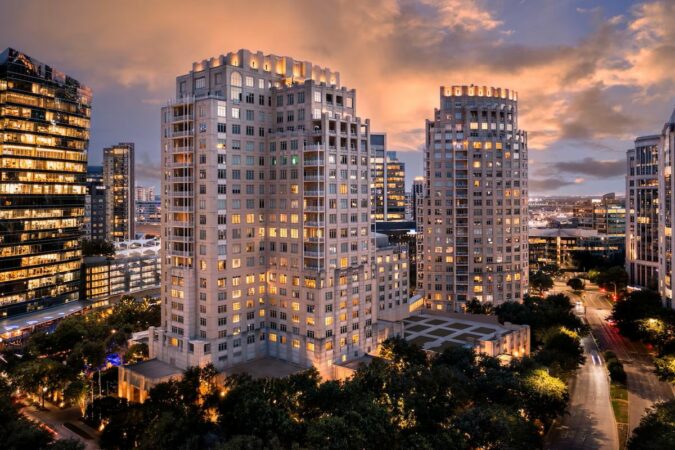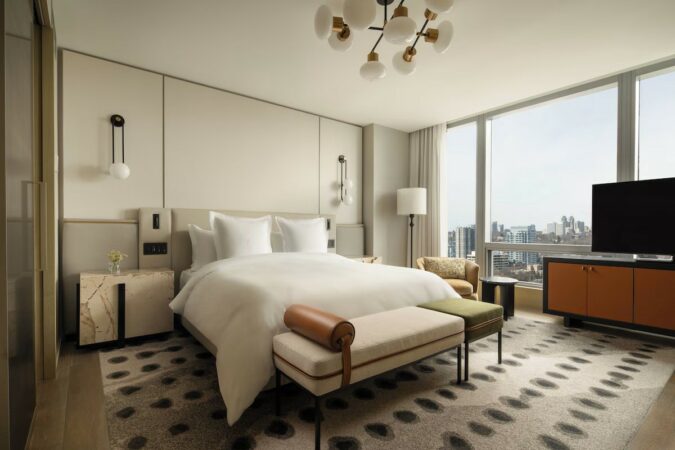In today’s world, where environmental consciousness is increasingly at the forefront of travel choices, the hospitality industry is rising to the challenge by creating luxurious yet sustainable sanctuaries. These eco-friendly hotels blend comfort with a commitment to preserving the natural world, offering guests not just a place to stay but an opportunity to contribute to the planet’s wellbeing. We take a look at some of the world’s most outstanding eco-friendly hotels, where sustainability meets style in the most harmonious ways.
5* Six Senses Con Dao, Vietnam
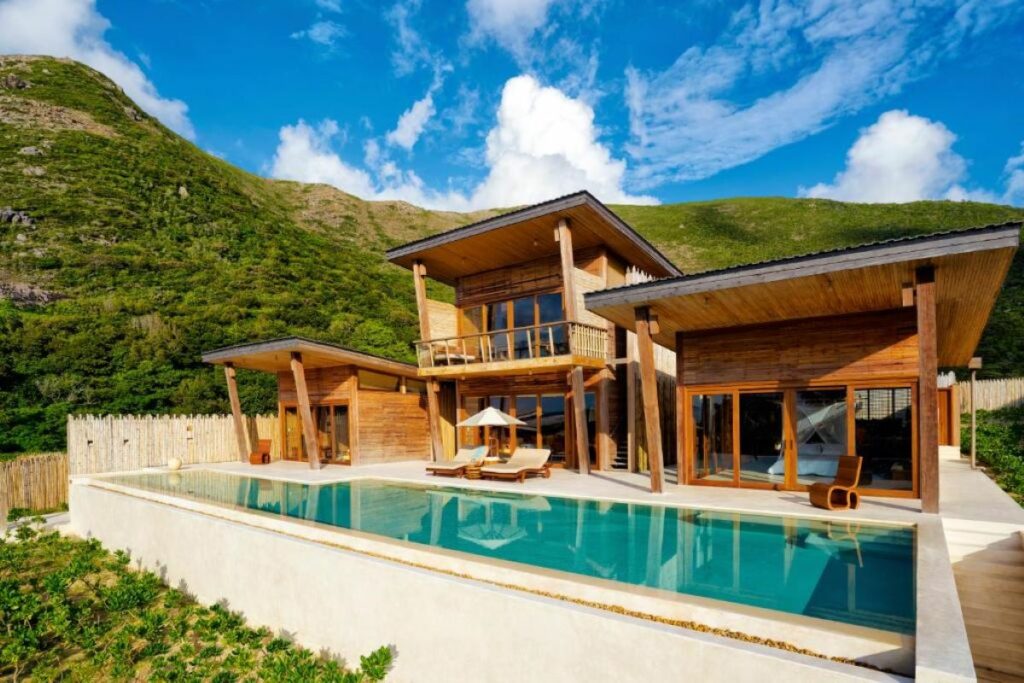
Nestled in the pristine archipelago of Con Dao, Six Senses Con Dao is a remarkable example of sustainable luxury. This resort is set within a protected national and marine park, emphasising its commitment to conservation. The architecture of the resort reflects a blend of modernness and traditional Vietnamese craftsmanship, with buildings constructed from local, sustainable materials such as reclaimed wood. Solar panels power much of the resort, and a sophisticated water management system ensures minimal waste. Six Senses Con Dao also runs a turtle conservation project, giving guests the rare opportunity to witness the hatching of endangered sea turtles—a testament to the resort’s deep connection to the local ecosystem.
5* Soneva Fushi, Maldives
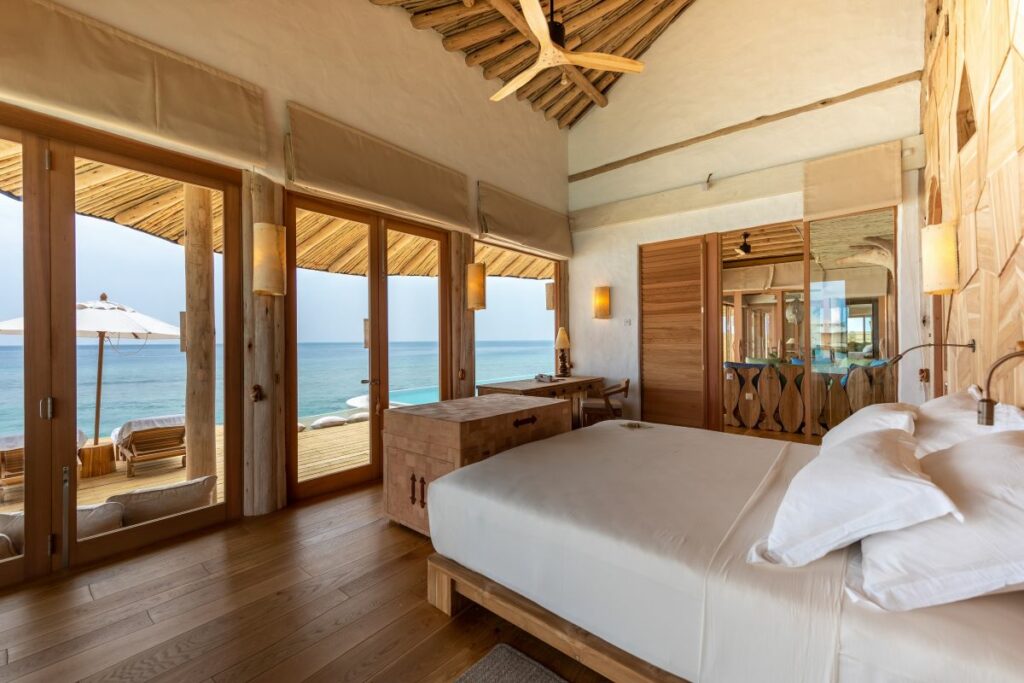
In the heart of the Maldives, Soneva Fushi is a pioneer in eco-friendly luxury. This breathtaking resort operates on a philosophy of “intelligent luxury,” where indulgence goes hand in hand with environmental stewardship. The villas, built with locally sourced, sustainable materials, are hidden away among the dense tropical foliage, ensuring minimal impact on the island’s natural beauty. Soneva Fushi’s commitment to sustainability extends to its zero-waste goal, achieved through composting, recycling, and upcycling initiatives. The resort also features a state-of-the-art solar power plant that provides a significant portion of its energy needs. Soneva Fushi’s eco-initiatives are not just confined to the resort; the company actively supports marine conservation efforts in the surrounding waters, ensuring that the vibrant coral reefs and marine life remain protected for generations to come.
5* The Brando, French Polynesia
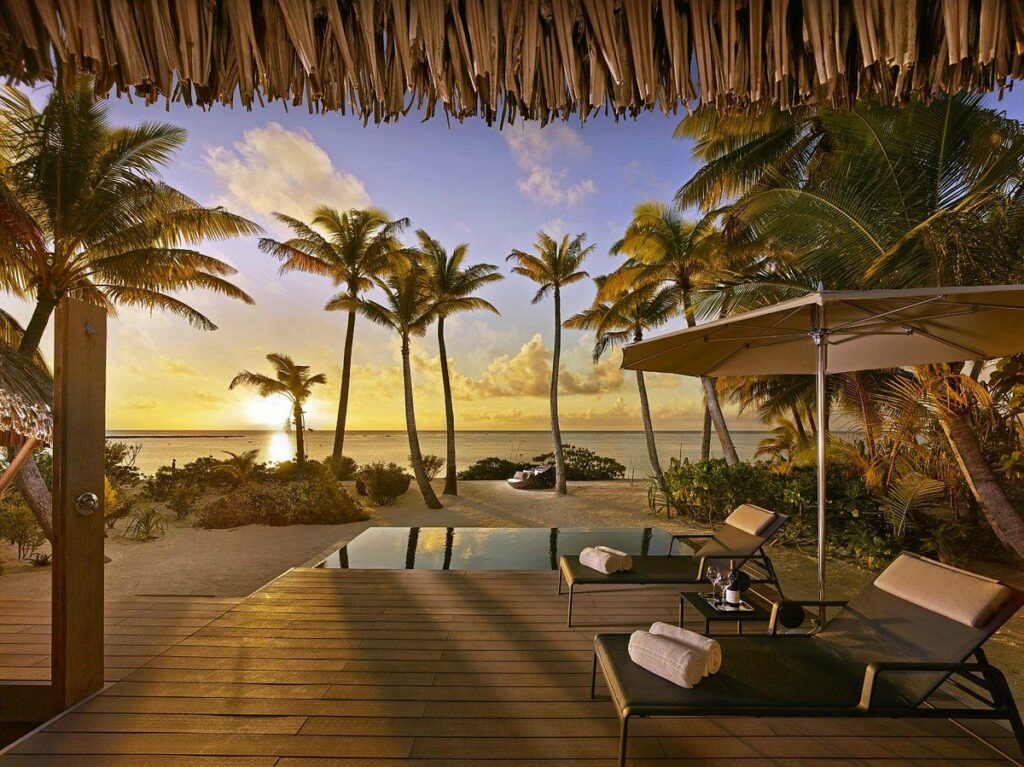
Situated on the private island of Tetiaroa, The Brando is a luxurious resort that has become synonymous with eco-friendly travel. This resort was designed with a focus on carbon neutrality and is powered almost entirely by renewable energy, including solar power and coconut oil biofuel. The Brando uses a pioneering deep seawater air-conditioning system, which significantly reduces energy consumption. The resort’s commitment to sustainability extends to its conservation efforts, with ongoing projects to protect the island’s wildlife and marine environment. Guests can take part in guided eco-tours to learn about the island’s unique ecosystems and the resort’s sustainability initiatives.
5* Hoshinoya Karuizawa, Japan
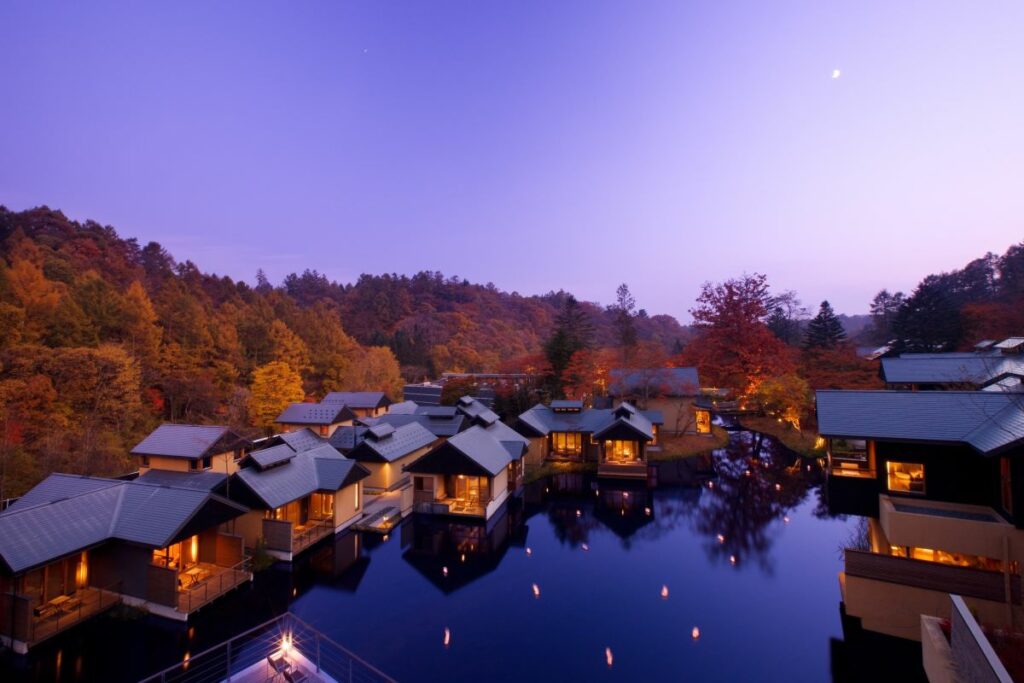
Nestled in the serene mountains of Nagano Prefecture, Hoshinoya Karuizawa is a sanctuary that combines traditional Japanese aesthetics with cutting-edge sustainability. The resort is powered by geothermal energy, thanks to its location in an area with abundant hot springs. Hoshinoya Karuizawa also has a comprehensive water recycling system and takes great care to minimise waste, with an emphasis on reducing plastic use and promoting recycling. The resort’s design is deeply influenced by its natural surroundings, with the buildings blending seamlessly into the landscape. Guests are encouraged to reconnect with nature through activities like bird watching and forest bathing, fostering a deeper appreciation for the environment.
4* Inkaterra Machu Picchu Pueblo Hotel, Peru
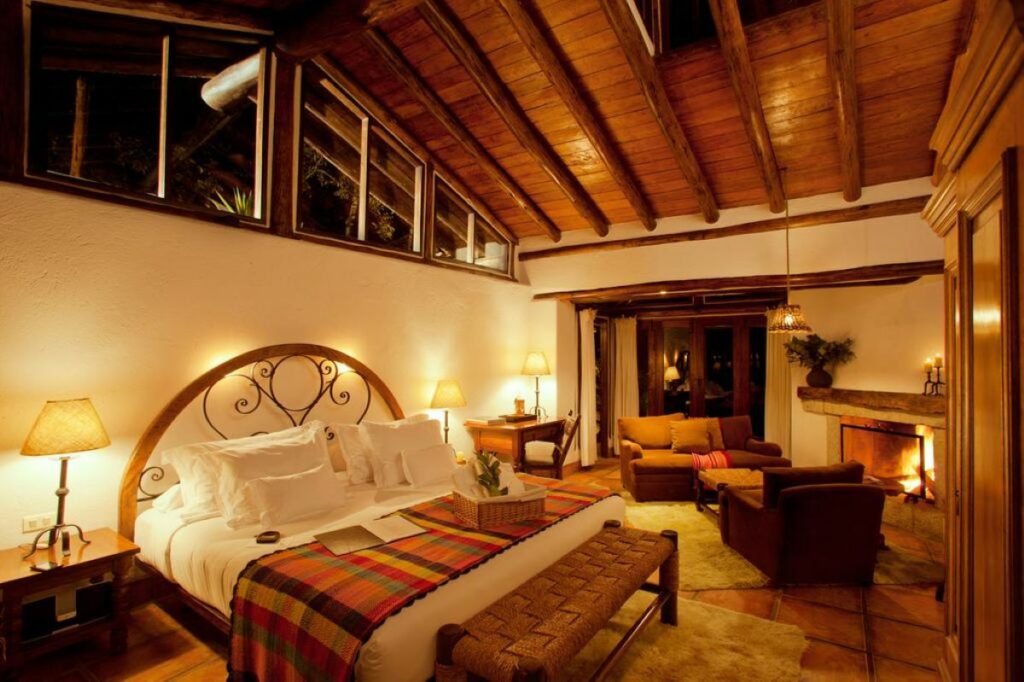
Set in the heart of the Peruvian Andes, just a short distance from the iconic Machu Picchu, Inkaterra Machu Picchu Pueblo Hotel offers a unique eco-friendly experience in a location steeped in history. The hotel is committed to biodiversity conservation and environmental education, with over 200 bird species and a staggering variety of orchids on its grounds. The hotel’s architecture is inspired by Andean culture, using natural materials such as stone and eucalyptus wood. Inkaterra Machu Picchu Pueblo Hotel is also a leader in sustainable tourism, with initiatives that include reforestation projects, organic farming, and waste management programs. Guests can participate in guided nature walks and visit the on-site research centre, deepening their connection to this incredible natural and cultural heritage.
5* Grootbos Private Nature Reserve, South Africa
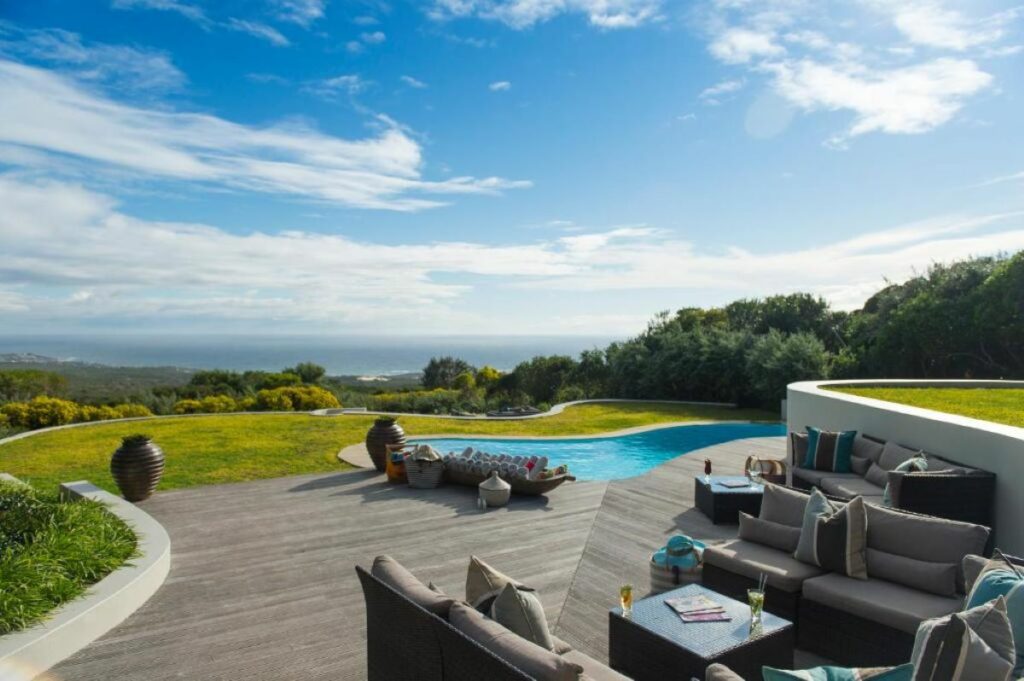
Located in the biodiverse region of the Western Cape, Grootbos Private Nature Reserve is a luxurious eco-lodge that offers an immersive experience in one of South Africa’s most pristine natural environments. The lodge is deeply committed to conservation, with a focus on preserving the unique fynbos ecosystem that surrounds it. Grootbos has a comprehensive sustainability plan that includes renewable energy use, water conservation, and community development projects. The lodge’s buildings are designed to minimise environmental impact, with eco-friendly materials and energy-efficient systems throughout. Guests can explore the reserve’s diverse flora and fauna through guided tours, and they are encouraged to learn about the ongoing conservation efforts that make Grootbos a true leader in sustainable tourism.
4* Jetwing Vil Uyana, Sri Lanka
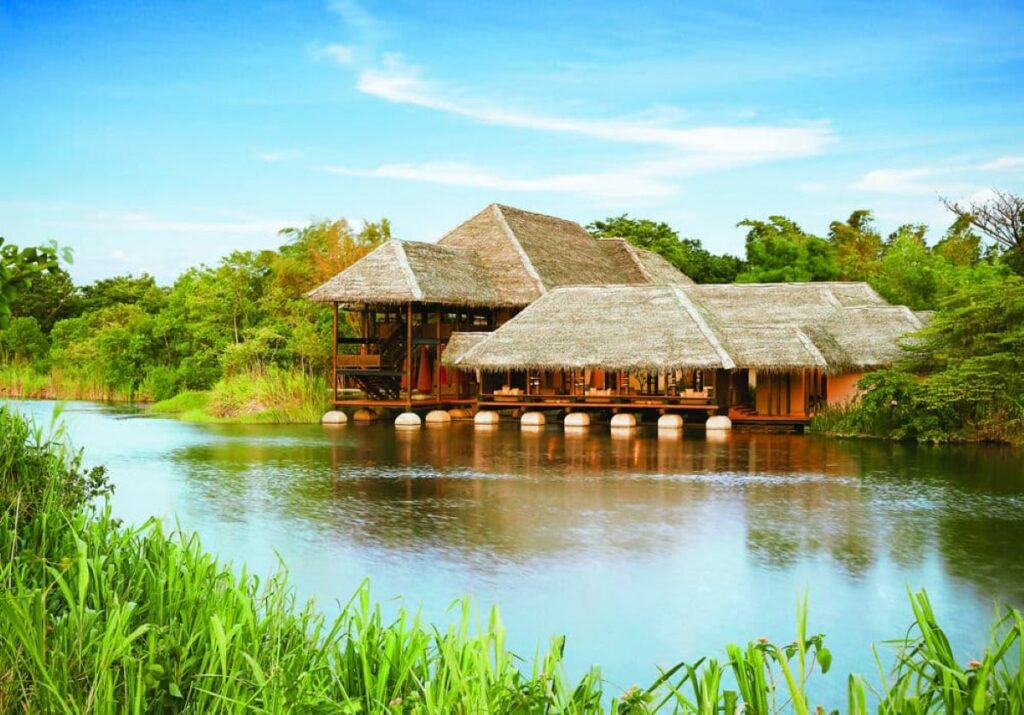
Tucked away in the heart of Sri Lanka’s cultural triangle, Jetwing Vil Uyana is a shining example of sustainable tourism that marries environmental responsibility with cultural heritage. Built on a reclaimed agricultural land, the resort has transformed barren land into a thriving wetland ecosystem, complete with paddy fields and a man-made lake. The design of the resort’s dwellings, inspired by traditional Sri Lankan architecture, uses locally sourced materials such as bamboo and timber. Jetwing Vil Uyana is powered by renewable energy sources, including solar power and a biomass boiler that generates heat from sustainable sources. The resort also focuses on water conservation, using rainwater harvesting and an advanced wastewater treatment system. Guests can explore the surrounding wilderness on eco-tours, where they might encounter rare wildlife such as the elusive loris, a species that the resort actively protects.
5* Tambo del Inka, Peru
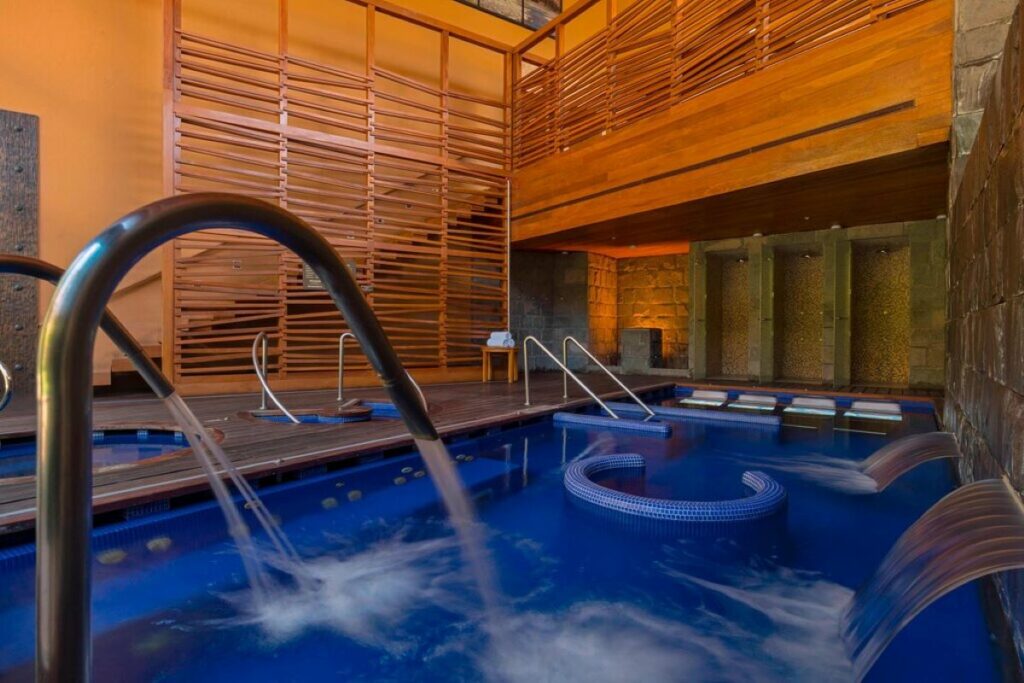
Located in the Sacred Valley of the Incas, Tambo del Inka is a luxury resort that blends Andean tradition with contemporary eco-friendly practices. The resort is designed to reflect the natural beauty of its surroundings, with architecture that incorporates locally sourced stone, wood, and textiles. Tambo del Inka is one of the few hotels in Peru to be LEED-certified, recognising its commitment to sustainability in design and operations. The resort’s energy efficiency is enhanced by the use of solar panels, water-saving technologies, and an on-site wastewater treatment plant. Additionally, Tambo del Inka supports local communities through various initiatives, including sourcing food from nearby organic farms and offering guests the opportunity to participate in traditional Andean ceremonies. With its breathtaking location near the Urubamba River and its dedication to preserving cultural and natural heritage, Tambo del Inka provides a deeply enriching, sustainable travel experience.
5* Longitude 131°, Australia
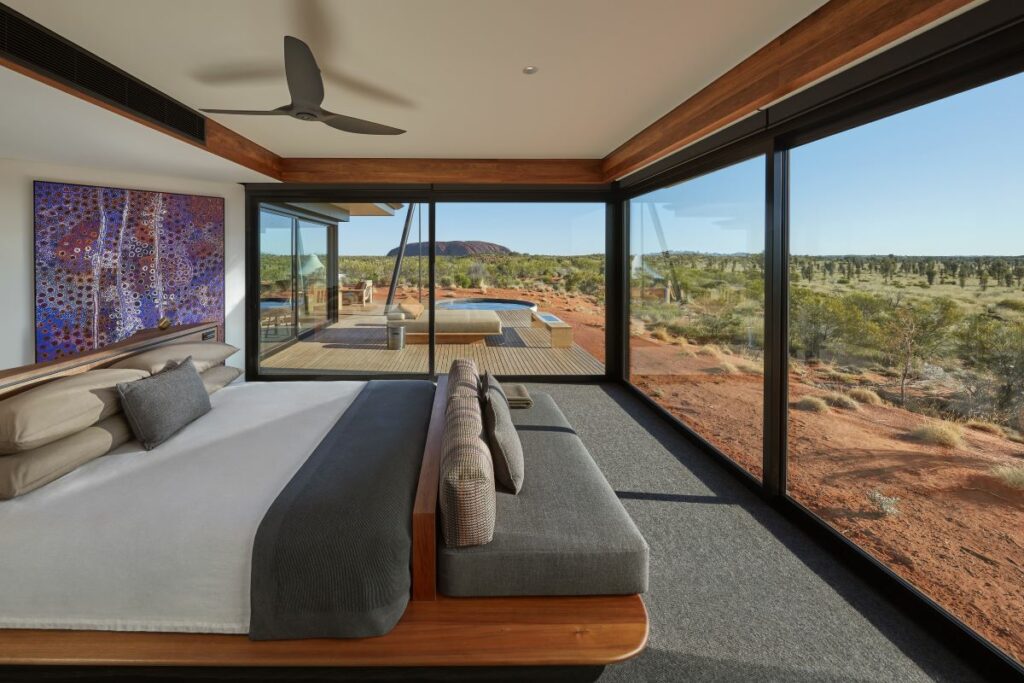
Set in the heart of Australia’s Red Centre, with stunning views of Uluru, Longitude 131° offers a unique, eco-sensitive luxury camping experience. This exclusive tented camp is designed to have minimal impact on the fragile desert environment, with structures elevated to protect the landscape and maximise natural ventilation. Solar power provides much of the camp’s energy, and water conservation is a priority in this arid region, with greywater recycling systems in place. Longitude 131° also works closely with the local Anangu people, respecting and incorporating their cultural heritage into the guest experience. This includes guided walks led by indigenous rangers, who share their deep knowledge of the land and its significance. The camp’s commitment to sustainability extends to its culinary offerings, with a focus on native Australian ingredients and locally sourced produce. Staying at Longitude 131° allows guests to immerse themselves in the spiritual and natural wonders of the Australian outback while supporting conservation and cultural preservation efforts.
